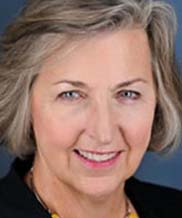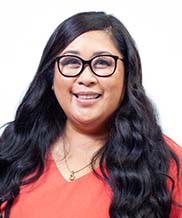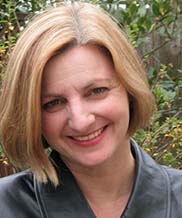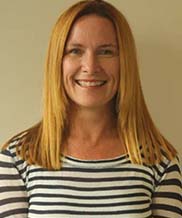Flying Without Co-pilots: Opportunities to Bridge Gaps in the Support Ecosystem for Children with Autism – Session 2
Three Day Workshop, 3:00pm-5:00pm (Pacific)
January 12th, Building Together: At Home and in the Community
January 19th, Growing Together: Training and Professional Development
January 26th, Informing Each Other: Information, Data, and Processes
How might we conceptualize an ecosystem of support for children with special needs (ASD in particular) in order to make changes that will result in closing the gaps of a broken ecosystem?
Children with special needs benefit from assistance and support from a variety of people, including teachers, aides, behavior technicians, occupational therapists, and most especially, their parents or immediate caregivers. Providing learning opportunities to a child with special needs requires an ecosystem of support, with each participant understanding the interactions and goals of their counterparts and serving as agents for the whole child. In many cases, the phrase “it takes a village to raise a child” resounds with greater emphasis for individuals with special needs.
Unfortunately, the current system places service providers in silos with little cross communication. Inside this ecosystem, organizations and professionals might have the best intentions, yet not receive the cooperation needed to make their work successful. In addition, these various service providers and groups often have incentives that do not align. It generally falls to parents and caregivers to manage communication between the parties, while simultaneously caring for their child. To respond to the challenges of the current system, a variety of approaches are underway – from new technologies that reach children in their homes to recommendations for new special education policies, to an infrastructure of training and professional development. A key element we want to explore is how infrastructure and interaction might be improved to enable better communication and cooperation with other support personnel. One area for impact is the training and certification of professionals who are working in this field of special needs support, particularly for those with autism.
To understand how we might better shape the capabilities and mindset of these individuals, and to create a more effective ecosystem, mediaX is inviting exploration into the requirements necessary to re-envision training and professional development for teachers and medical professionals working with children with special needs. What infrastructure could be envisioned to promote collaboration and communication between and among support personnel? Through perspectives on the current situation and the identification of how and where progress is being made, discussions will encourage the development of recommendations for ways in which Stanford University and collaborators might positively impact future interactions within the care ecosystem.
This workshop series will address this question:
How we might better shape the capabilities and mindsets of professionals who work in fields of autism and special needs support – teachers, medical professionals and other care givers working with children with special needs.
We hope to shine a spotlight on inflection points for the enhanced effectiveness of this ecosystem.
Using insights shared by thought leaders and perspectives brought by participants we’ll discuss and brainstorm starting points, potential roadblocks, and pathways to solutions.
In our second of three sessions:
We will explore how training and professional learning might impact opportunities and mindsets of teachers, therapists, clinicians, and other ecosystem players.
Presenters

Elizabeth Kozleski is Professor (Research) of Education with the Stanford Graduate School of Education. She engages in systems change and research on equity and justice issues in inclusive education in schools, school systems as well as state and national education organizations and agencies. Her research interests include the analysis of systems change in education, how teachers learn in practice in complex, diverse school settings, including how educational practices improve student learning. A number of her articles focus on the design and development of teacher education programs that involve extensive clinical practice in general education settings. She has led the development of such programs in three universities, and continue to do research and development work in teacher education. She has also offered technical assistance as well as conducted research on the impact of technical assistance on individuals, as well as local, state, and national systems in the U.S. and abroad.

Jennifer Camota Luebke is the Chief Rehabilitation Officer for PRIDE Industries, the largest employer of people with disabilities in the country. She is also the mom of an adult son who has an intellectual disability and is also a junior at Georgia Tech. She brings more than 25 years of corporate business, higher education, and nonprofit leadership to PRIDE Industries. She managed large accounting operations departments and ERP systems implementations for Fortune 500 companies like Gap, Inc., Electronic Arts, and Genentech. Jennifer served as Associate Dean and Professor of Leadership at the University of San Francisco and Hult International Business School and has run her own leadership coaching and change management consulting practice. Jennifer is the co-founder of Ability Revolution, Inc., a not-for-profit organization which produces film and media projects that influence the way society views people with disabilities. Jennifer’s board service guiding disability-related organizations includes Best Buddies, All Belong Center for Inclusive Education, and the State of the Art Conference on Inclusive Postsecondary Education.

Pamela Wolfberg is a Professor in the Department of Special Education at San Francisco State University where she coordinates Autism Spectrum Studies and serves on faculty for the Joint Doctoral Program with the University of California, Berkeley. She is creator of the Integrated Play Groups model and co-founder of the Autism Collective for Peer Socialization, Play and Imagination. Her life’s work centers on the unique experiences of people on the autism spectrum while advocating for their rights to social inclusion and creative expression in play and other culturally valued experiences with peers. To advance these efforts, she has an active international agenda leading research, training and global outreach while directing/co-directing grants and serving in government and NGO advisory roles. She has an extensive record of publications in peer-reviewed journals and is the author of numerous chapters and books in several languages. In addition, she has been serving in editorial positions with major professional journals. She is the recipient of many eminent awards for her scholarship, research and service to the community.

Lani Hessen is Kidspace Founder & Clinic Director and Sr. Director of Advocacy at Cognoa. She founded Kidspace in 2005 after years at California Pacific Medical Center's Child Development Center. She has post-graduate training in Advanced Therapeutic Listening, Masgutova Neuro Reflex Integration and the Perceptual Enrichment Program, and works with children of all ages and ability levels. Lani received her master's degree in occupational therapy from Samuel Merritt University in 1999.